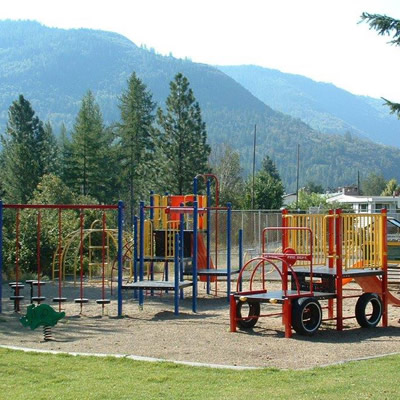Selkirk College helping provide forest industry building blocks

The forest industry is vital to the economy of our region and the province. Selkirk College is partnering with industry to ensure it has a healthy future.
To help ensure the industry's future, Selkirk College is partnering with those on the front lines to ensure labour gaps are filled with specialized training opportunities.
Selkirk College is joining the Community Forest Societies in Nakusp and Kaslo in helping foster solutions to pressing training needs in the region’s forest industry by partnering with stakeholders who have identified gaps.
At the end of May, logging contractors from many West Kootenay communities met in New Denver with Selkirk College Community Education & Workplace Training staff, community forest managers and a BC Community Forest Association representative. Stakeholders such as logging contractors, Interior Lumber Manufacturers Association, and the Interior Logging Association are all interested in filling labour gaps with specialized training. The meeting was the result of next steps identified at two community forest Forums that were held in Nakusp and Kaslo earlier in the spring.
“At both forums, loggers and logging contractors identified the succession planning gap that currently exists as a result of the industry economic downturn and a need for industry training,” says Gregg Neelin, Manager of Community Education & Workplace Training at Selkirk College. “As a result, interested parties met to discuss potential training opportunities in the logging industry: what is needed and what are the current challenges.”
The loggers identified a number of key elements to a successful training program. They want to see a greater connection to the high schools, a “real world” look at the forestry industry, a laddered training program and keen participants.
“The earlier downturn in the industry resulted in a break in the historical succession planning cycle, where owner/operators of logging operations would generally train their children to take over the business,” says Nakusp and Area Community Forest Manager Hugh Watt. “The training was hands-on and could take years to develop the necessary expertise in the field. Now, a new cycle needs to be created and logging contractors are keen to be part of the development process.”
Traditional Model of Family Business No Longer the Norm
The process now becomes one of external recruitment, rather than internal recruitment. In other words, the owner/operators want to hire people, train them and eventually have them take over the business. This is a big opportunity for youth in our area and a plan is being developed to share information with high schools.
Contractors spoke about the need for real world situations to provide participants with experience of working outdoors in all its natural ruggedness, working physically and mentally, and learning a broad range of skills from power saw operation to tree identification. After this work experience phase, participants would have a better understanding of the industry rigors and their adaptability, endurance and inclination for the job.
The contractors endorsed the idea of a laddered training program that would allow participants to begin at basic entry level safety training to increase their employability. The next step would be a second set of training modules, identified by the loggers. Using this style of training program would provide flexibility by offering training streams such as moving from entry level work to choker work, then on to specialized areas, such as chaser, bucker, hook tender, and equipment operator, within a logging operation.
“The group of loggers was clear on the need for keen and committed participants in the training program,” says Neelin. “Everyone agreed that the skills and expertise can be taught, but there are key components that a new employee brings to the workplace. The employers are always looking for these important elements in a new recruit. They want someone who is keen and motivated, interested in learning—for instance practicing on a piece of equipment during lunch break—able to work through discomfort, and a good fit to the crew.”
Selkirk Helping Develop Training Opportunities
Selkirk College will now get to work on the next steps in the process.
“We received some valuable information from the logging contractors, including the identification of potentially 40 new well-paying jobs in the West Kootenay region,” says Kaslo and Area Community Forest Manager Bill Kestell. “We will continue working with industry stakeholders to develop a training program that meets the needs of the logging industry and that delivers economic benefits and job creation to the local communities.”
For further information, please contact the Kaslo or Nakusp college extension centres at 250.353.2618 (Kaslo) and 250.265.4077 (Nakusp), Bill Kestell or Hugh Watt.
Learn more about Community Education & Workplace Training at Selkirk College and join us on Facebook.





Comments